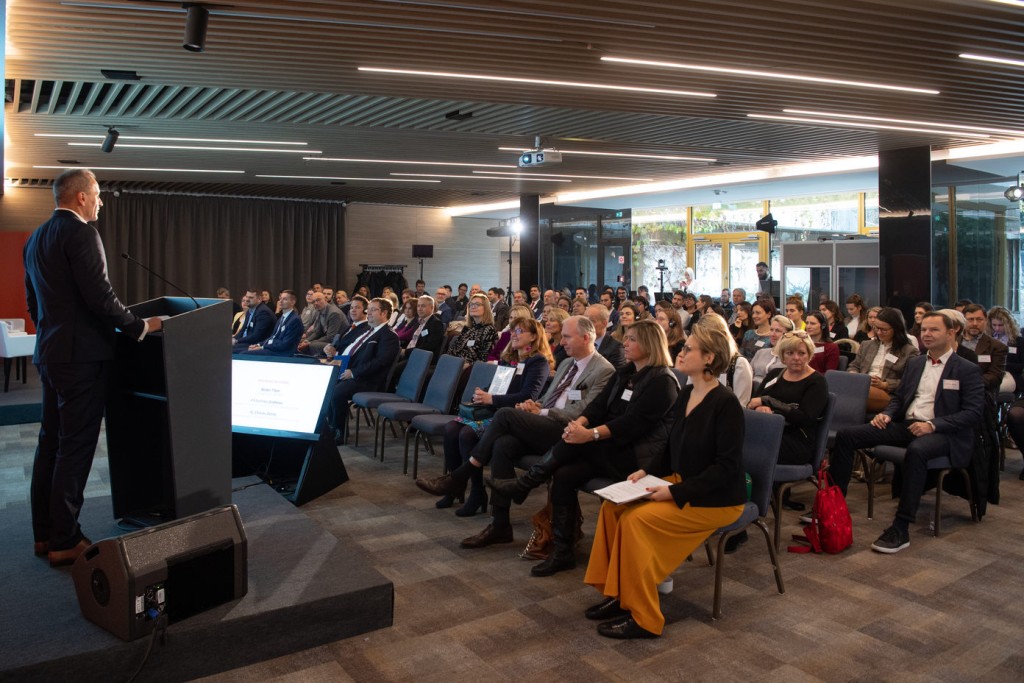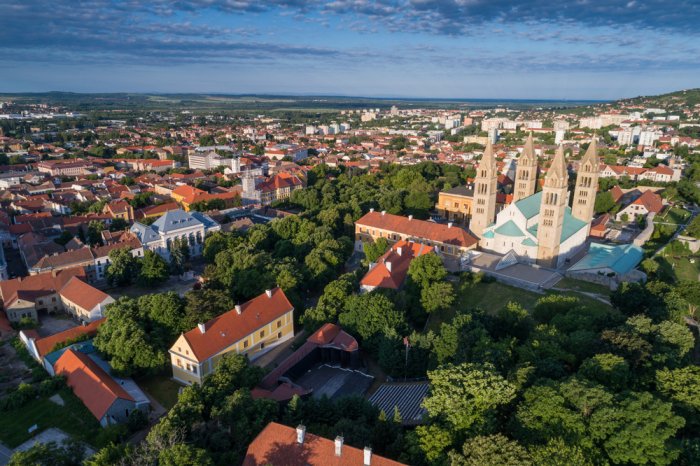Circular Economy the Key to Halting Biodiversity Loss, BCSDH says

Photo by BCSDH
The fifth Circular Economy Summit was held this month with nearly 150 people in attendance. The event focused on the close interrelation of circular economy and biodiversity.
According to the Hungarian Business Council for Sustainable Development (BCSDH), only 8.6% of the global economy is circular, despite the fact that it is one of the most effective tools to tackle pressing challenges like the preservation and restoration of biodiversity.
At the biggest circular event of the year, which the council held with the help of ING Bank, a number of corporate and startup examples of the circular economy were provided along with an overview of international processes. Today, the Circular Economy Platform, which was established at the initiative of the Hungarian Business Council for Sustainable Development (BCSDH), the Dutch Embassy, and the Hungarian Ministry of Innovation and Technology, consists of 97 members.
BCSDH argues that the impact of the linear economy is unquestionable: more than 90% of the biodiversity loss is caused by the extraction and processing of natural resources. In the last decade, the global economy has consumed 70% more virgin materials than the world can safely replenish.
"Companies must be at the forefront of systemic changes. Those who act earlier are apparently less likely to suffer from external effects such as rising energy prices, shortages of raw materials, or disruptions in supply chains… Climate neutrality must be achieved urgently – among other things – through the spread of the circular economy, which the leading companies have already recognized… according to this year’s ‘Towards Net Zero’ research, the use of circular solutions is increasingly coming to the fore. For the time being, these solutions are mostly seen as new business opportunities alongside preexisting ‘material-intensive’ processes. But the aim should increasingly be to replace the latter, as this approach can only slow down the use of natural resources," highlighted Attila Chikán Jr., president of BCSDH, in his speech.
"Use the current crisis to build a circular, regenerative and future-proof economy that not only stops the destruction of the Earth but restores the damage that has been done," added Efstathios Andreou, Deputy Ambassador of the Netherlands to Hungary in his opening speech.
Guest speaker at the Circular Economy Summit was Prof. Dr. Jacqueline Cramer, a renowned expert on the circular economy, professor at Utrecht University, chair of the board of the Dutch Circular Hotspot, former Dutch Minister of Housing, Spatial Planning and the Environment, and author of the book Building a Circular Future, published in 2022.
"Coalitions and alliances need to be built with those willing to take the lead in making a circular future a reality, and the number of pilot schemes needs to be expanded with more and more donors and active government involvement," she said.
Hungary is currently not managing its natural resources well and is far from circular, but it is encouraging that, as in Europe, the legislative process has started to address the issue of the circular economy, the council argued.
"Sustainability is at the heart of ING Bank’s strategy. We see the shift to a circular economy as essential to preventing climate change, and financial institutions have the responsibility to be the drivers of this process, as we banks can provide the finance to make the transition," added Tibor Bodor, CEO of ING Bank, and host of the event.
SUPPORT THE BUDAPEST BUSINESS JOURNAL
Producing journalism that is worthy of the name is a costly business. For 27 years, the publishers, editors and reporters of the Budapest Business Journal have striven to bring you business news that works, information that you can trust, that is factual, accurate and presented without fear or favor.
Newspaper organizations across the globe have struggled to find a business model that allows them to continue to excel, without compromising their ability to perform. Most recently, some have experimented with the idea of involving their most important stakeholders, their readers.
We would like to offer that same opportunity to our readers. We would like to invite you to help us deliver the quality business journalism you require. Hit our Support the BBJ button and you can choose the how much and how often you send us your contributions.







